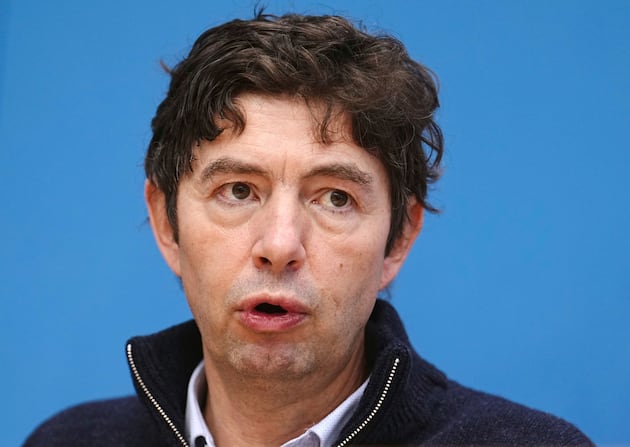And another new Corona subline that is spreading: XBB.1.5 is the technical name. What virologist Christian Drosten thinks about it – and how he wants his statement about the end of the pandemic in December to be understood.
From the point of view of virologist Christian Drosten, the XBB.1.5 coronavirus subline, which is increasingly being detected in the USA, should also become predominant in Germany. “Simply because the relative transmissibility of this virus compared to the other viruses currently circulating is so much greater,” said the researcher at the Berlin Charité on Thursday in the “Coronavirus Update” podcast.
The advantage is reminiscent of the times when the Delta and Omicron variants came up. But that doesn’t mean that a huge new wave is threatening this winter, said Drosten.
The number of detected cases of XBB.1.5 in Germany was still relatively low at the end of 2022. “The XBB.1.5 variant, which is widespread in the United States of America, had a share of 1 percent,” writes the Robert Koch Institute (RKI) in its Covid 19 weekly report on Thursday evening. “Their share in the previous weeks was less than 0.5 percent.” Like other sub-lines, the sub-line is under observation.
Preliminary data indicated a growth advantage over other and previously circulating sublines. The information relates to data from the last week of the past year and is based on small absolute numbers.
According to the World Health Organization (WHO), the new sublineage has no mutation known to alter disease severity. However, due to genetic traits and growth rate estimates, potential for case numbers to increase is seen worldwide. However, there is still a lot of uncertainty – also because the information on the growth advantage has so far only been based on US data.
Corona specialist Drosten was heard again in the NDR info format on Thursday for the first time in almost ten months and initially pointed out a misunderstanding about his much-noticed statement about the end of the pandemic in December. In the interview, he actually said something different than what was received by parts of the public. About the reading of some media and politicians, after which he declared the pandemic over, he said: “I think everyone who has heard me communicate so far knows that I don’t actually say such research things in public.”
He can only say what he expects: “That we will soon say in a few months: In hindsight, that was the first endemic wave of this virus, and that’s the end of the pandemic.” You can’t announce something like that in advance.
Sentences from the “Tagesspiegel” interview had also led to political calls for further easing. The newspaper quoted him as saying: “We are experiencing the first endemic wave with Sars-Cov-2 this winter, in my opinion the pandemic is over.” He added: This means that after this winter such a broad and resilient population immunity there is “that in summer hardly any virus can get through”.
There is no concrete evidence for concerns about a new virus variant due to the high number of infections currently in China, Drosten said in the podcast. However, there is a certain fundamental risk that the virus will still find new solutions there. Possible new variants could be found very quickly through tests in many entry countries. So far, the pathogens found in China are “completely normal virus variants”, which are also part of the existing mixture here.
In the first Corona weekly report of the new year, the RKI writes: “After the significant decline and a slight increase in the meantime before the turn of the year, there are now signs of a further decrease in the number of cases.”








